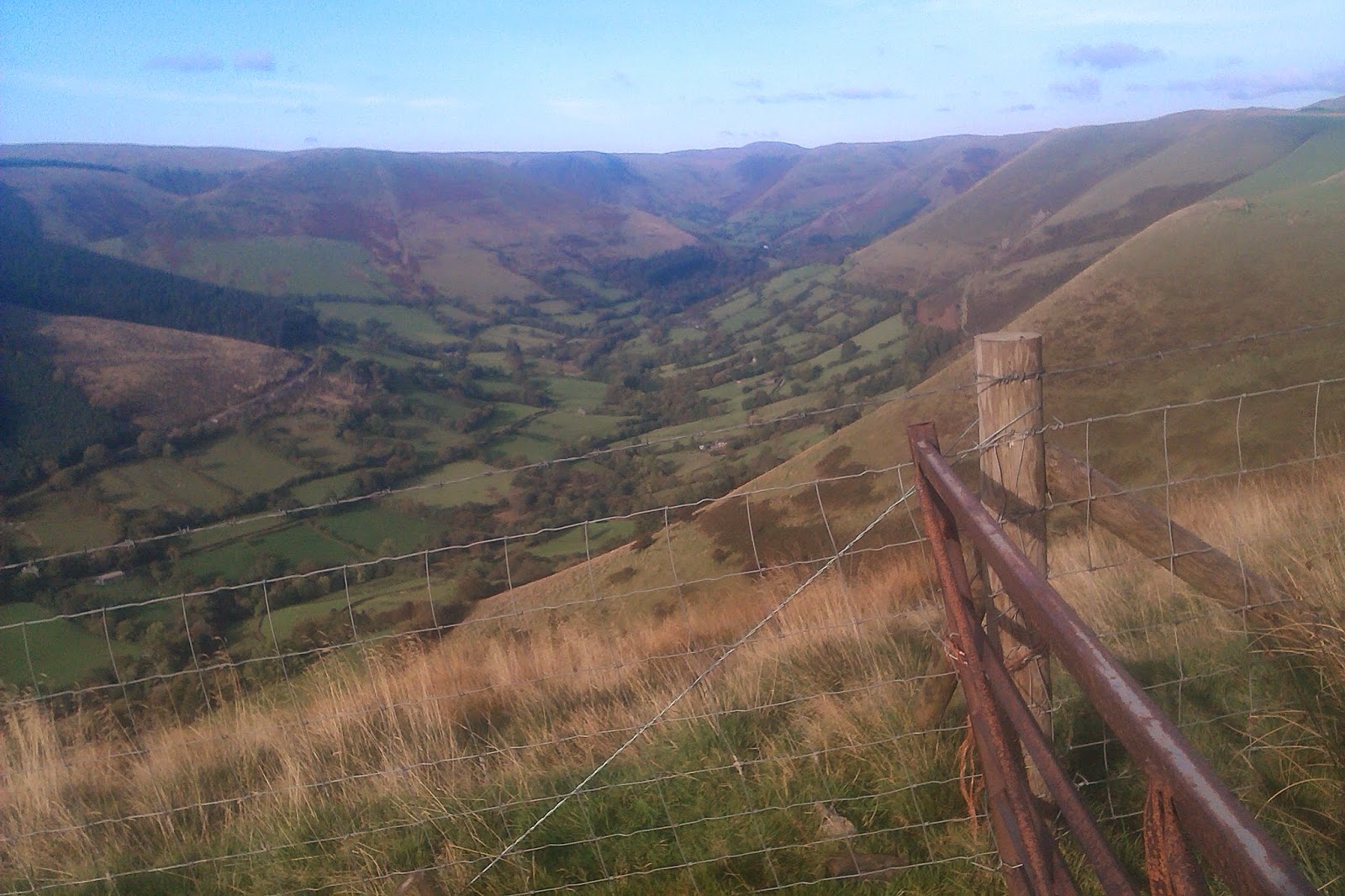 |
| A pylon slowly steaming in the early sun |
Mostly these days I can be found digging with a fork slowly through the uncultivated part of my garden. I rig a piece of twine to enclose a rectangle ten metres by 1.2 metres, just half a metre from a previously dug bed of similar proportions. With a wheelbarrow for collecting clumps of weed root system or parts of thin tree roots, and a bucket for stones, I fork my way backwards from one end to the other. One bed can take several days, the soil being so thoroughly stony and weedy. Whenever the bucket or the barrow is full, they're taken off and emptied on one of the two growing hillocks of rejected earth or stones.
Once a bed is complete I cover it with rotted horse manure and then dig a shallow trench along the ten-metre long gap between it and its neighbour, shovelling earth on top of the manure, again removing stones and weed roots as I go. Hey presto, another raised bed!
Normally I switch my mind to auto-pilot and let it meander where it will as I plug away through the soil. There's always a chance it will hit upon something revelatory or revolutionary, an idea that will change the course of history. By a strange coincidence there's exactly the same probability of my striking a seam of Welsh gold. Both hopes, although meaninglessly small, nevertheless remain stubbornly alive to tickle my imagination once in a while.

Instead, the sort of thought I tend to get is as follows. I was once told that there are no dairy farmers around these parts of Wales because the soil is not good enough to produce grass sufficiently nutritious for dairy cows; only beef cattle and sheep can tolerate it. The milk in the shops come from many miles away. Then how, I idly wonder, did they manage back in the days before the petrol engine? Milk did not keep long then, no refrigeration or pasteurisation. If you wanted milk, you had to live not too far from a dairy cow. I can only assume one of the following is true:
1) they did not drink milk
2) they only drank sheep's or goats' milk
3) they did, in fact, keep dairy cows despite the poor soil. However the milk yield from each cow would have been less than those on richer soils, and much less than what is considered economically viable nowadays.
 |
| Squash |
My hunch is that (3) is the correct answer but I am happy to be proved wrong. Not having the internet here to research further into the matter, I have decided to indulge in a spot of bloogling to uncover the truth. Now don't panic if you've never heard of bloogling - it is a term which has in fact been coined for the first time right here in this paragraph. It means when a blogger requests his or her audience to do some googling on his or her behalf, and respond with the answer in a comment underneath the blog. You can understand why I've had to invent the term; I don't expect any other blogger has been forced to bloogle before. Bloggers, almost by definition, have access to the internet and can undertake their own web searches whenever they like. I am a freak off-grid blogger with only an hour of internet time each week at the library thirteen miles away, and so am forced to rely upon the good nature of my beloved readership who presumably have both internet access and time on their hands (why else would you still be reading this waffle?)
 |
| A pheasant has a rest on my garden net |
Good luck with your task! Especially with posting your responses, since many have told me that they have been quite unable to. I think you need a Google+ account. Failing that, those of you who know me on Facebook or email can always send in your bloogle-response that way. And for extra bonus points, try examining all your food and drink this week to find out what has the lowest 'food-miles' and what has the highest. You can even place them all into a long line in the kitchen in order of their food-mile ranking and get your loved ones to guess what you're doing. Oh the fun to be had!
 |
A pheasant has a longer rest -
it had been shot by the shoot across the river and glided across to die here. |
 |
| I made full use of the free meat! |

















